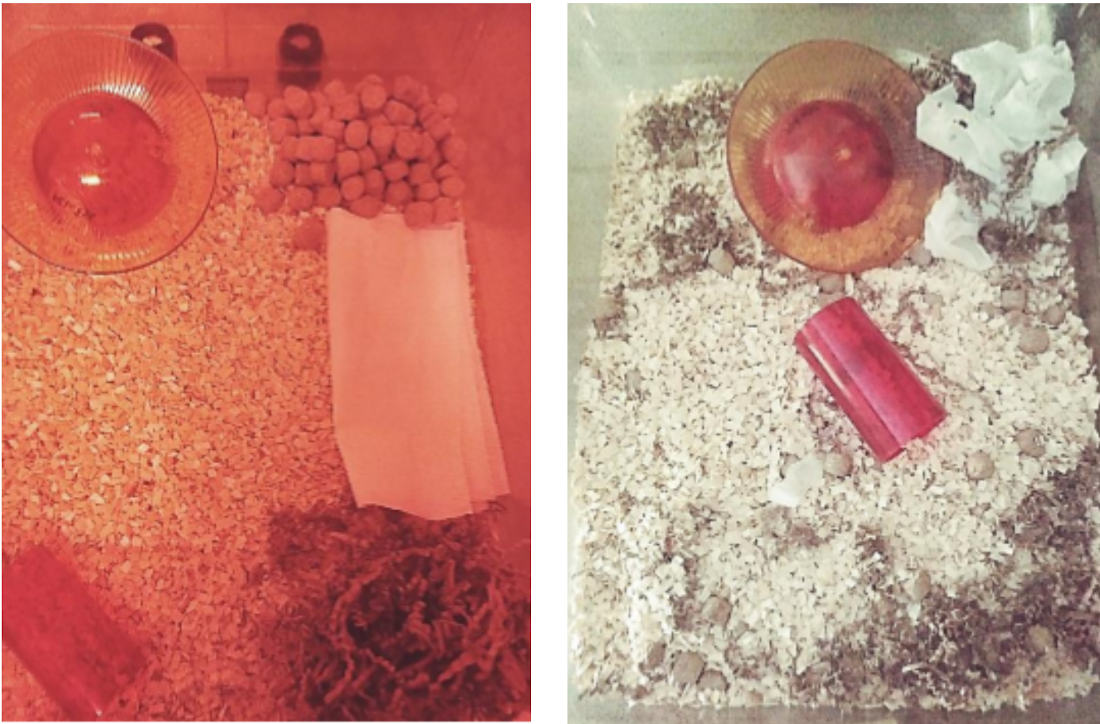Assessing the well-being of laboratory rodents in behavioral experiments (Semester Project/ Master Thesis)

Figures illustrate the animal‘s cleaned cage with enrichment and nest-material (left) and the animal‘s cage after days of nest-building behavior (right)
An increasing number of studies use rodents in complex behavioral paradigms for studying higher cognitive functions and decision-making, often in combination with chronic recordings and manipulation of neuronal activity. Typically, in these paradigms food or water is used for positive reinforcement. However, little is known about the impact of such a reinforcement scheme on the well-being of laboratory rodent even though the effect of it on the animal’s well-being is critical information for the experimenters to be able to rely on a high degree of cooperation by a healthy animal. Therefore, in a previous study we assessed the condition of a small group of rats over weeks by scoring multiple parameters without interfering with the animals. We would like to perform a similar study in mice, using an extended set of the indicators for the animal’s well-being. One commonly used parameter to assess the condition of a mice, is the so-called Nest Complexity Score (Jirkof, 2014). Laboratory mice engage around 5% of their day to build nests to provide heat conservation, a sleeping site and to allow the mouse to shield itself from other subjects and external stimuli, e.g. direct light. This innate behavior has been shown to be a sensitive indicator of the mice’ condition (Jirkof et al., 2013). Together with other scoring parameters this new nest building score will establish a comprehensive picture of the animals’ condition and well-being when in behavioral experiments or when not.
Project Description:
Your task is to design and execute a study in mice that allows the characterization of an animals’ well-being by visual inspection using different parameters such as the nest complexity score and others. Additionally, video footage of the animals may be analyzed using the latest machine learning algorithms for behavioral classification.
Type of Work & Requirements:
The project will require you to work with mice. The certificate of LTK1 / FELASA B for performing animal experiments is required. Alternatively, you can start designing your project, getting familiar with the literature and simultaneously take the LTK 1 module. Previous experience in R or Python would be helpful for data analysis. You would have the opportunity to work in an established neuroscience laboratory encompassing a wide range of specialties spanning experimental, computational, and engineering fields.
Contact
Newsha Ghasemi Nejad
Email: gnewsha (at)ethz.ch